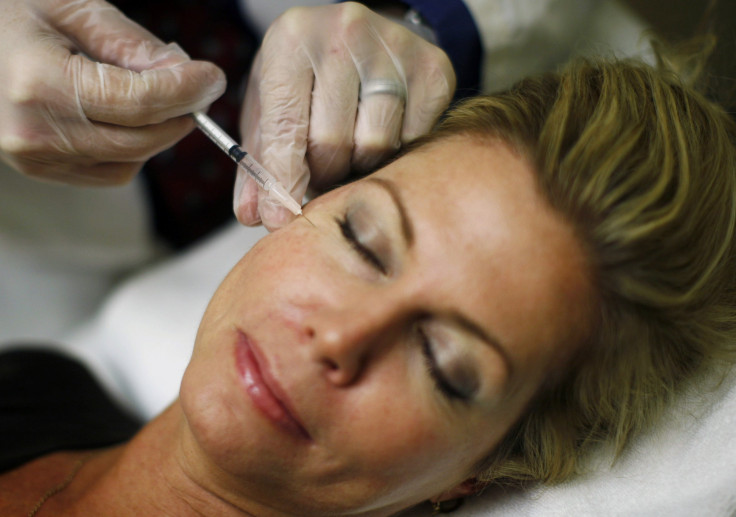Botox Injections Relieve Symptoms Of The Blues: Can Depression Disappear With A Shot?

The stereotype of a Botox user is an aging Hollywood actor desperate for an unwrinkled, camera-ready face. Such "typecasting" may soon be replaced by a more serious medical image. A research review presented at the annual meeting of the American Psychiatric Association gives weight to previous suggestions that Botox injections can relieve symptoms of depression.
Botox uses a form of botulinum toxin, which is produced by the microbe that causes botulism, to temporarily paralyze muscle activity. Basically, a shot of Botox directly into facial muscles will block chemical signals from the nerves and so temporarily relax the face and wrinkles, magically it would seem, to disappear. Doctors started using Botox as a minimally invasive cosmetic fix in 1996, but it wasn’t until 2002 that the Food and Drug Administration officially approved this use. According to the American Society of Plastic Surgeons, some 6.3 million Botox procedures are performed each year. Clearly, Botox has moved far beyond the Hollywood crowd.
But what about the newest claims of the drug's positive effects on depression — can Botox really turn frowns upside down?
To evaluate the effectiveness of Botox in alleviating depression, Dr. Ajay Parsaik of the University of Texas and his co-researchers searched medical databases for studies of its effects. After retrieving 639 articles, the researchers landed on five studies appropriate for systematic review and three to include in a metaanalysis. Running the somewhat limited data, the researchers found rather impressive evidence of the drug's positive effects on patients.
Eight times as many patients who received injections of Botox saw improvement in their depression symptoms when compared to patients who did not receive the shots. The Botox patients showed, on average, a 9.8-point decrease in their depression test scores. The remission rate — when depression symptoms disappeared entirely — was 4.6 times higher among the patients receiving Botox.
“This study suggests that botulinum toxin A causes significant improvement in depressive symptoms and is a safe adjunctive treatment for depression,” concluded Parsaik and his co-authors. Notably, few participants experienced minor side effects.
So, how does Botox work to ease depression? A group of Swiss and German researchers believe the treatment “may act comparable to a passive and uninterrupted relaxation exercise.” Seeing a more positive, less unhappy-looking face in the mirror — and hearing compliments from our friends — may pick up our spirits.
“One participant actually attained remission but disliked the change in facial appearance,” noted the researchers. Interestingly, a positive response to this unusual treatment does not depend on actually liking the freshened up face staring back at us in the mirror.
Source: Parsaik A, Mascarenhas SS, Hashmi A, et al. Role of Botulinum Toxin in Depression: A Systemic Review and Meta-Analysis. APA Annual Meeting. 2015.



























